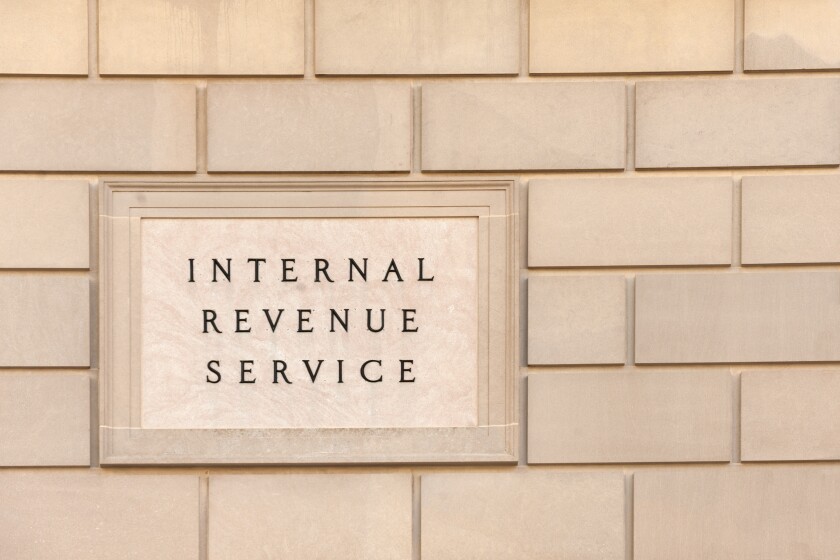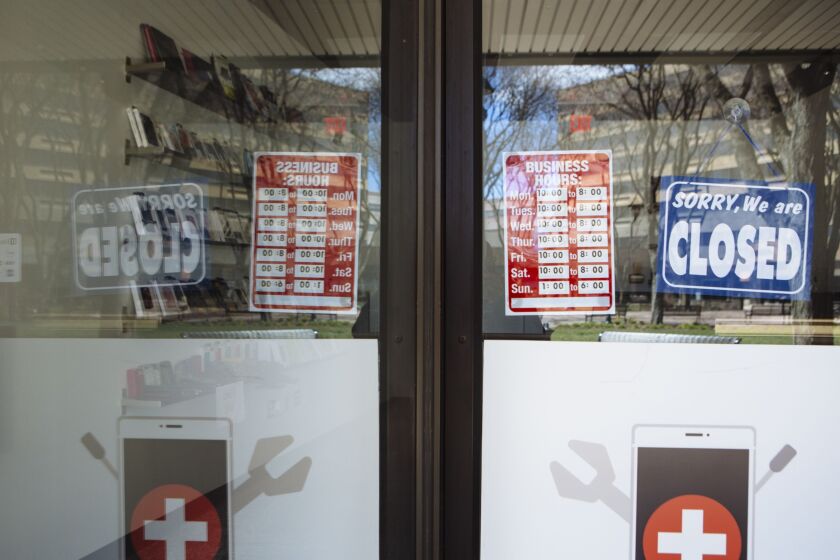The Consumer Financial Protection Bureau is moving forward with its payday lending and "qualified mortgage" rules despite logistical issues and the industry's focus on economic effects from the coronavirus pandemic.
CFPB Director Kathy Kraninger has given no indication about any CFPB rulemaking being put on hold. The agency is focused on finishing certain regulations even though its employees are working from home due to at least one confirmed case of COVID-19. However, like many regulatory agencies, the bureau is likely to delay other lower-priority actions.
“They are determined to continue with their different rulemakings but it’s also possible that some things will be put off,” or extended, said Jeff Naimon, a partner at Buckley.
Since the outbreak began, the financial regulators have paused some efforts but persisted with others. Yet the CFPB is moving quickly to finalize some rules to make it harder — should the Democrats win the presidency in November — for a new agency director to reverse them, according to sources familiar with the agency's thinking.
“The CFPB has plenty of bandwidth to complete all pending rules before the end of this year,” said Alan Kaplinsky, a partner and co-practice leader at Ballard Spahr. “I don’t think they will or should put off any other pending rulemakings.”
The CFPB is still widely expected to finalize its small-dollar lending rule this month to rescind underwriting requirements that formed the basis of a previous 2017 regulation. Meanwhile, more certainty about the QM rule, which gives mortgage lenders legal protection from ability-to-repay standards, is seen as an even higher priority now with the pandemic threatening the stability of the mortgage market.

At issue with QM is the status of a temporary exemption from the current rule for loans backed by Fannie Mae and Freddie Mac. That exemption, known as the QM “patch,” sunsets in January 2021. It has allowed Fannie and Freddie to purchase loans that exceed a 43% debt-to-income requirement.
The CFPB has signaled its intent to ease QM standards for all loans, including lowering or eliminating the DTI requirement. But mortgage market observers say the fragility of the sector amid coronavirus concerns could spur the agency to move more quickly on a narrower revision that perhaps leaves the temporary patch in place. Job losses have forced roughly 2 million homeowners to ask for forbearance on their mortgage payments.
“The thinking around making a major change to the QM rule right now could really shift,” said Richard Horn, founding attorney and managing member at Garris Horn and a former senior counsel and special advisor in the CFPB’s Office of Regulations.
Other pending agency actions and deadlines are statutory. For example, the CFPB is required by law to do a "look-back" review of "Know Before You Owe" mortgage disclosure rules by October.
The bureau's most recent rulemaking agenda pointed to the agency's finishing a debt collection rule and revised mortgage reporting standards this year, but some experts believe those moves could be delayed because the of the health crisis.
The Internal Revenue Service’s Criminal Investigation Division issued a warning Thursday about a new wave of COVID-19 scams tied to the latest round of stimulus payments, especially targeting taxpayers in the District of Columbia.
Last month's COVID-19 relief bill has accountants recommending some deductions to clients, and wondering about the applicability of others.
The U.S. Small Business Administration plans to reopen the Paycheck Protection Program to small lenders on Friday and to all lenders next Tuesday.
The agency is likely motivated to finish the payday rule to head off potential legal challenges. The rule effectively will overturn requirements that formed the core of a 2017 final rule issued by former CFPB Director Richard Cordray. Some experts think the bureau will be sued by consumer advocates who will claim that rescinding the rule is “arbitrary and capricious,” a violation of the Administrative Procedure Act.
But also likely weighing on the CFPB is a looming Supreme Court case that could enable a sitting president to fire the agency's director. If the rule isn't finished this year and former Vice President Joe Biden — the presumptive Democratic nominee — wins the White House, it raises the odds that a successor to Kraninger could take the agency in a different direction.
"They really can’t wait too long, they have limited time to get this thing done," Kaplinsky said. "Right now they are a little bit nervous that the clock is running on them because if Biden gets elected and defeats Trump in November, what they don’t want to happen is for a new head of the CFPB to come into office on January 20 and [Biden] will put somebody else in there who would likely want to go back to the original rule."
Some predict that disclosure requirements for payday lenders — as opposed to tougher underwriting requirements in Cordray's rule — could form the cornerstone of Kraninger’s payday rule.
The bureau also is expected to issue a separate rulemaking at the same time to reconsider the payment provision of the original rule limiting how often a lender can access a consumer’s checking account, sources said.
Meanwhile, many in the mortgage industry are hopeful that the CFPB will move quickly to extend the QM patch for Fannie- and Freddie-backed mortgages.
The bureau had indicated it would issue a proposal in May to solicit feedback on what would replace the 43% debt-to-income limit for QM loans. Nearly a third of loans currently backed by the government-sponsored enterprises exceed that limit
Depending on how long the current turmoil caused by the COVID-19 outbreak lasts, the bureau may need to give industry more time to respond. But the agency would need to issue a separate rulemaking to extend the January 2021 sunset date further.
“The problem is, what is the mortgage market going to look like when the smoke clears and do they want to issue a proposal now when things could be really different after,” said Horn. “It might make sense to delay and provide a further extension though they would need a rulemaking to extend it.”
Kraninger has spoken of the need to provide credit access to low- and moderate-income borrowers who will be the hardest hit by the outbreak. Therefore, she could move more aggressively to replace the DTI limit with a standard more linked with a loan's interest rate.
“If they think the rule is going to provide more access to credit, then they might want to move forward with it,” Horn said.





